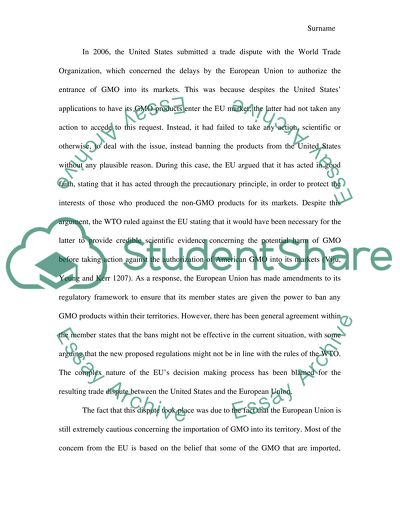Cite this document
(“Genetically Modified Organisms, U.S. and E.U. Trade Dispute Research Paper”, n.d.)
Genetically Modified Organisms, U.S. and E.U. Trade Dispute Research Paper. Retrieved from https://studentshare.org/macro-microeconomics/1495231-genetically-modified-organisms-us-and-eu-trade-dispute
Genetically Modified Organisms, U.S. and E.U. Trade Dispute Research Paper. Retrieved from https://studentshare.org/macro-microeconomics/1495231-genetically-modified-organisms-us-and-eu-trade-dispute
(Genetically Modified Organisms, U.S. And E.U. Trade Dispute Research Paper)
Genetically Modified Organisms, U.S. And E.U. Trade Dispute Research Paper. https://studentshare.org/macro-microeconomics/1495231-genetically-modified-organisms-us-and-eu-trade-dispute.
Genetically Modified Organisms, U.S. And E.U. Trade Dispute Research Paper. https://studentshare.org/macro-microeconomics/1495231-genetically-modified-organisms-us-and-eu-trade-dispute.
“Genetically Modified Organisms, U.S. And E.U. Trade Dispute Research Paper”, n.d. https://studentshare.org/macro-microeconomics/1495231-genetically-modified-organisms-us-and-eu-trade-dispute.


